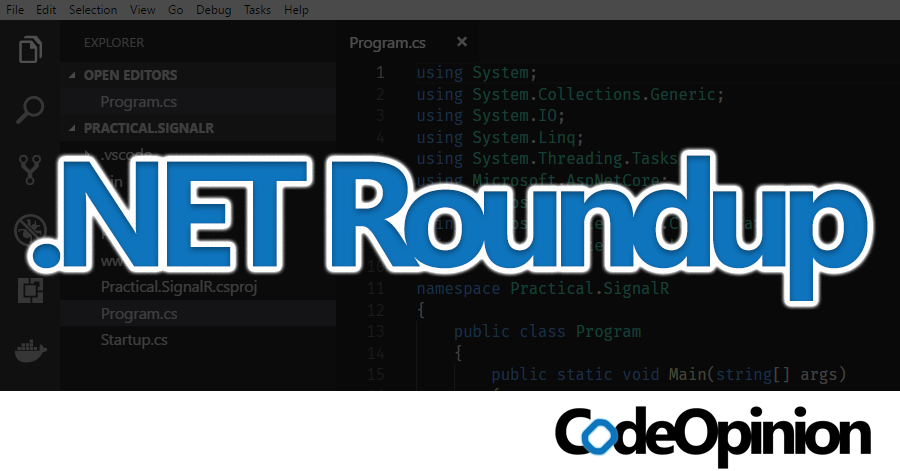Sponsor: Using RabbitMQ or Azure Service Bus in your .NET systems? Well, you could just use their SDKs and roll your own serialization, routing, outbox, retries, and telemetry. I mean, seriously, how hard could it be?

After a bit of a break, the .NET Roundups are back! This week, it’s almost as if Andrew Lock was working on the exact same I was as he had two posts back to back that solved two issues I was having. Incredible timing and as always great content from Andrew.
5 ways to set the URLs for an ASP.NET Core app
In this post I show 5 different ways to change which URLs your app listens on. We’ll look at each of these options in more detail below.
Link: https://andrewlock.net/5-ways-to-set-the-urls-for-an-aspnetcore-app/
How to automatically choose a free port in ASP.NET Core 3.0
In this post I show one way to resolve the problem by randomising the ports ASP.NET Core uses when it starts the application. I’ll also show how you can work out which port the application has selected from inside your app.
Link: https://andrewlock.net/how-to-automatically-choose-a-free-port-in-asp-net-core/
Service and Container Orchestration for .NET with Tye
Tye helps .NET Core developers build applications that are a collection of services and containers. On your local machine, Tye runs your .NET services, any containers you need, and a dashboard you can use to inspect this environment. Tye can then deploy your services and containers to your Kubernetes cluster.
Project Orleans and the distributed database future with Dr. Philip Bernstein
Forty years ago, database research was an “exotic” field and, because of its business data processing reputation, was not considered intellectually interesting in academic circles. But that didn’t deter Dr. Philip Bernstein, now a Distinguished Scientist in MSR’s Data Management, Exploration and Mining group, and a pioneer in the field.
Today, Dr. Bernstein talks about his pioneering work in databases over the years and tells us all about Project Orleans, a distributed systems programming framework that makes life easier for programmers who aren’t distributed systems experts. He also talks about the future of database systems in a cloud scale world, and reveals where he finds his research sweet spot along the academic industrial spectrum.
Introducing the Diagnostics Client Library for .NET Core
In this episode, we’re joined by Software Engineer Sung Yoon Whang from the .NET Runtime team. He’s here to talk to us about the diagnostics client .NET Core. Using the library, you can communicate with CoreCLR to gather diagnostics dumps from your running application.